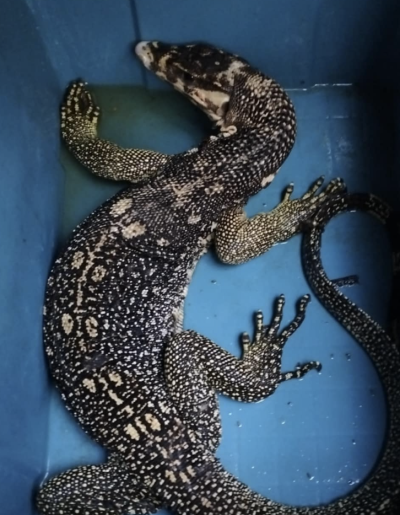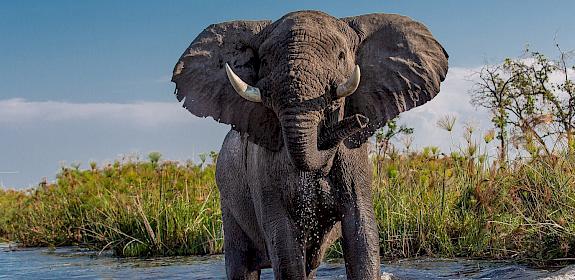Philippines busts established online wildlife trader with dozens of endangered animals.
After eluding arrest for more than a decade, a prolific long-time online wildlife trafficker has been caught in the Philippines with 83 animals, including the endemic and Critically Endangered Philippine Forest Turtle Siebenrockiella leytensis and Philippine Crocodile Crocodylus mindorensis.
The trader has been on the radar of enforcement officials since 2017 when his parcel containing a pit viper, five Philippine cobra and 10 sailfin lizards bound for Sweden was intercepted by the airport customs following a TRAFFIC tip off.
In an enforcement action on April 4, the Philippine National Police–Criminal Investigation and Detection Group (PNP–CIDG) arrested the man and rescued the animals in a buy-bust operation in San Pablo City, Laguna Province, about 85km north of the capital Manila.

The man lacked documents required for the possession, transport and sale of animals, in violation of Republic Act No. 9147 which included more species found exclusively in the Philippines such as its Crocodile Skink Tropidophorus grayi, Serpent Eagle Spilornis holospilus, Bent-toed Gecko Crytodactylus philippinicus and the West Visayas Water Monitor Varanus nuchalis according to the Department of Environment and Natural Resources – Community Environment and Natural Resources Office Sta. Cruz.
Several other native and exotic species were also found in the suspect’s possession.
CIDG Director Police Major General Nicolas Torre III was quoted by media describing the suspect as an “active seller of endangered animals without relevant permits”.
“Kudos to the law enforcement team led by the CIDG Regional Field Unit 4A Laguna on this significant success. Taking down entrenched and prolific traffickers like this with access to so many endangered and endemic species throughout the country is key to making a difference in the fight against wildlife crime,” said TRAFFIC’s Emerson Sy.
“Running an operation this big takes serious money and a deep network and for so long, many have operated with impunity. We hope that this bust is just the beginning, and authorities follow the money trail to expose the full web, and bring down everyone profiting from this illicit trade,” said Kanitha Krishnasamy, Director for TRAFFIC in Southeast Asia.
Last June, TRAFFIC, the Philippine Anti-Money Laundering Council, and the AML Research Centre Asia Pacific conducted joint training on financial investigation techniques, in response to the Philippine Government’s designation of environmental crime as a high money laundering risk.
A flourishing illegal trade in Philippine reptiles and other species online and through other modes has long raised alarm for the archipelagic nation’s incredibly high number of unique species.
TRAFFIC has flagged this trader to authorities in the course of its monitoring and analysis of illegal wildlife trade online in the Philippines. Over the years, our research has also outlined the scale and impact of this problem in the country.
In 2016, TRAFFIC’s research turned up over thousands of offers to sell reptiles on 90 Facebook groups over just three months. Since 2021, Facebook removed more than 2,000 such groups linked to prohibited wildlife sales in the Philippines.
More recent research has shown continued pressure on the country’s endemic monitor lizards and freshwater turtles and tortoises, like the recently confiscated Philippine Forest Turtle, which is amongst the world’s Top 25 most endangered turtles mainly due to illegal wildlife trade.





